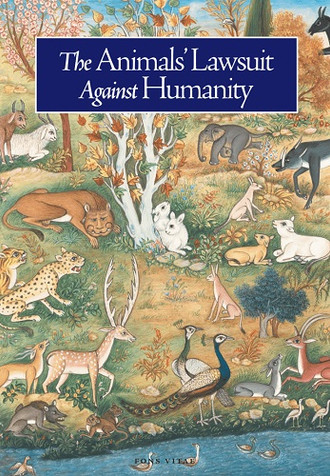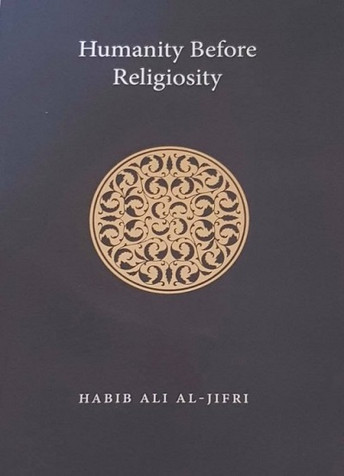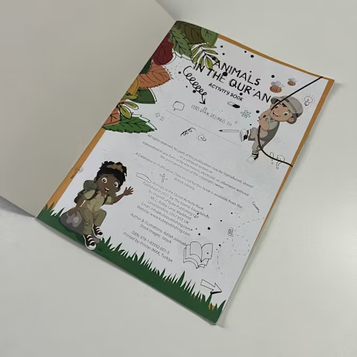Author: RABBI ANSONLAYTNER / RABBI DAN BRIDGE
ISBN: 9781887752701
Publisher: Fons Vitae
In this interfaith and multicultural fable, eloquent representatives of all members of the animal kingdom—from horses to bees—come before the respected Spirit King to complain of the dreadful treatment they have suffered at the hands of humankind. During the ensuing trial, where both humans and animals testify before the King, both sides argue their points ingeniously, deftly illustrating the validity of both sides of the ecology debate.
How current this tenth century tale is for both the young and old of today! It addresses environmental and animal rights issues with charming effectiveness. A Muslim Sufi work of 10th century Iraq, translated by a Rabbi into Hebrew, and rendered into Latin for a Christian king is now translated from the popular Hebrew version by Jews into English, edited by a Christian and illustrated exquisitely by a Muslim woman from India under the patronage of a Saudi princess. This is a true interfaith and multi-cultural title!
The ancient antecedents of this tale are thought to have originated in India, but the first written version of the story was penned in Arabic by members of the Islamic “Brethren of Purity”, Ikhwan al-Safa, a Sufi order, in the environs of Basra, Iraq, sometime before the tenth century of the Common Era. In their version, the story was the twenty-fifth of fifty-one “letters”, or treatises, the Rasa’il comprising an encyclopedia, in which were described the mysteries and meaning of life.
Much later, this one story, The Letter of the Animals, was translated and adapted by Rabbi Kalonymus ben (son of) Kalonymus, known among Christians as Maestro Calo, at the request of his master, King Charles of Anjou (in France), in the year 1316. The story was popular in European Jewish communities into the late 19th and early 20th centuries. Besides being published in Hebrew, it also was translated into Yiddish, German and Spanish. The text used was published in Jerusalem under the title Iggeret Baalei Hayyim (The Letter of the Animals) by Mosad HaRav Kook in 1949.
Kalonymus lived primarily in Arles, in the Provence region of France. The region at that time, along with Spain and Italy, were highly cultured and more tolerant than other parts of Europe because of the influence of and contact with the Islamic/Arab world through Muslim Spain. Rabbi Kalonymus, like many others, was busy translating into Hebrew Aristotle and many others important classical thinkers, whose works had been preserved in Arabic and transmitted by the Arabs to the West.
 US Dollar
US Dollar
















